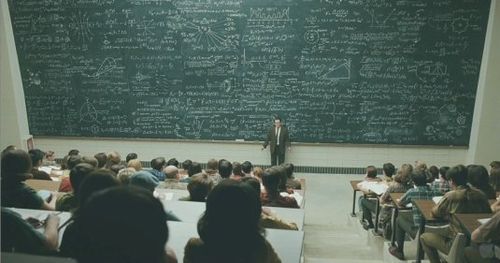Différences entre les versions de « MINI-SCHOOL 2022 »
| Ligne 28 : | Ligne 28 : | ||
==Presentation== | ==Presentation== | ||
| − | * The lectures delivered are intended to be of interest to any person working in the field of theoretical chemistry and physics and willing to discover or deepen | + | * The lectures delivered are intended to be of interest to any person working in the field of theoretical chemistry and physics and willing to discover or deepen some mathematical aspects of the field. Master and PhD students, post-docs and any academic are welcome! |
* To provide a detailed presentation of subjects, we have chosen to give a good amount of time to each lecturer. The mini-school will thus involve only two lecturers over a three-day period. | * To provide a detailed presentation of subjects, we have chosen to give a good amount of time to each lecturer. The mini-school will thus involve only two lecturers over a three-day period. | ||
| − | |||
==Program== | ==Program== | ||
Version du 18 mars 2022 à 10:06
(organized by GDR NBODY)
In the same spirit than the 1st edition, 2nd edition, and the 3rd edition.
- Date: 30 May - 1 June 2022 (to be confirmed)
- Location: Sorbonne Université, Pierre et Marie Curie (or Jussieu) campus, 4 place Jussieu, 75005, Paris.
Room to be confirmed.
- Lecturers: Mathieu Lewin and Emmanuel Giner
- Organizers: Eric Cancès, Emmanuel Fromager, Emmanuel Giner, Pierre-François Loos, Julien Toulouse. email contact
Presentation
- The lectures delivered are intended to be of interest to any person working in the field of theoretical chemistry and physics and willing to discover or deepen some mathematical aspects of the field. Master and PhD students, post-docs and any academic are welcome!
- To provide a detailed presentation of subjects, we have chosen to give a good amount of time to each lecturer. The mini-school will thus involve only two lecturers over a three-day period.
Program
Two courses will be proposed:
- 1) Finite group theory (9 hours) by Emmanuel Giner, Laboratoire de Chimie Théorique, CNRS and Sorbonne Université, Paris.
Indicative program (subject to changes and extension):
- Definition of symmetries in quantum mechanics
- Definition of groups and related concepts (group axioms, classes)
- Basics of linear representation of groups (representation, irreducible representations, characters)
- Useful theorems of linear representation of groups and their application in quantum mechanics (Schur's lemma and the Hamiltonian, orthogonality theorems, projection operators)
- Product representations (representation on tensor products vector spaces, Clebsch-Gordon coefficients, irreducible tensor operators)
- Examples for electronic-structure theory
- 2) The mathematical description of solids (9 hours) by Mathieu Lewin, CEREMADE, CNRS and Université Paris Dauphine, Paris
Indicative program (subject to changes and extension):
I. Quick introduction to spectral theory
- A bit of history about the concept of self-adjoint operators
- Continuous spectrum and generalized eigenfunctions, example of plane waves
II. One-electron systems in a periodic background
- Bloch-Floquet theory
- Regularity of Bloch surfaces, absolute continuity of the spectrum
- Symmetry groups and the universality of Dirac cones in 2D, graphene
- Spectral projections, infinite Hartree-Fock states
- SCF models, Kohn-Sham
III. Interacting systems
- Thermodynamic limit for Coulomb systems
- Uniform Electron Gas: the known and the unknown
Schedule
room ? |
room ? |
room ? |
|---|---|---|
| 8:45-9:00 Arrivals/Welcome | ||
| 9:00-10:30 Giner 1 | 9:00-10:30 Lewin 3 | 9:00-10:30 Giner 5 |
| 10:30-10:45 Coffee break | 10:30-10:45 Coffee break | 10:30-10:45 Coffee break |
| 10:45-12:15 Giner 2 | 10:45-12:15 Lewin 4 | 10:45-12:15 Giner 6 |
| 12:15-14:00 Lunch | 12:15-14:00 Lunch | 12:15-14:00 Lunch |
room ? |
room ? |
room ? |
| 14:00-15:30 Lewin 1 | 14:00-15:30 Giner 3 | 14:00-15:30 Lewin 5 |
| 15:30-15:45 Coffee break | 15:30-15:45 Coffee break | 15:30-15:45 Coffee break |
| 15:45-17:15 Lewin 2 | 15:45-17:15 Giner 4 | 15:45-17:15 Lewin 6 |
Practical details
Registration
Instructions to be provided.
To facilitate the participation of young researchers, no registration fees will be asked. However, accommodation will not be provided but must be arranged independently by the participants.
Location of the mini-school
The mini-school will take place on the Pierre et Marie Curie (or Jussieu) campus of Sorbonne Université, 4 place Jussieu, 75005 Paris.
Subway (Metro) lines 7 or 10: get off at "Jussieu" station.
Lunches
To be arranged.
Arriving by Plane
Both Paris-Charles de Gaulle (CDG) and Paris-Orly international airports are connected to the center of Paris by RER (fast regional railway) or coaches. The RER is connected to the subway (Metro) network. It costs about 10 euros to go from either airport to the center of Paris and it takes about one hour.
For more information, check the Paris airports website.
From Paris-Charles de Gaulle (CDG) airport
From the airport take RER line B. Stop at "St-Michel-Notre-Dame" station. Take subway line 10 direction "Austerlitz" and stop at "Jussieu" station.
From Paris-Orly airport
From the airport take the monorail "OrlyVal" to "Antony". Take RER line B. Stop at "St-Michel-Notre-Dame" station. Take subway line 10 direction "Austerlitz" and stop at "Jussieu" station.
Arriving by Train
All the railway stations are in downtown Paris and are connected to the subway network. For train reservation, check the SNCF web site.
From any train station follow the sign "M" to the subway.
Arriving by Subway or Bus
For more information on the RER, Subway and Bus systems, check the RATP web site, and in particular the Subway and RER map.
